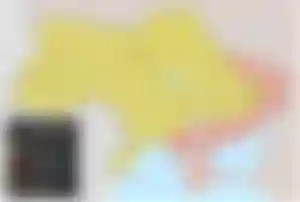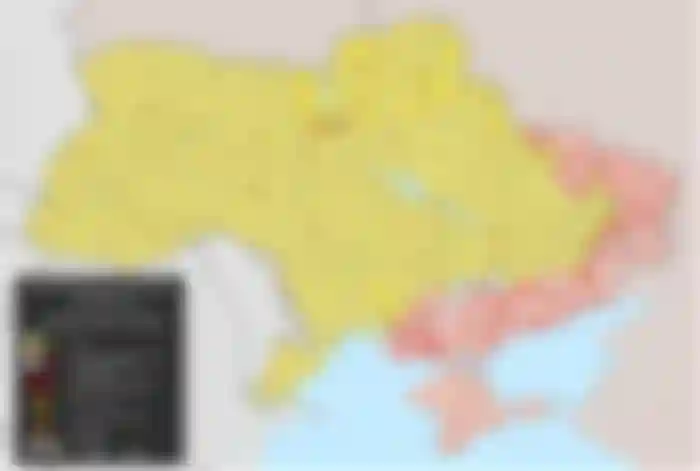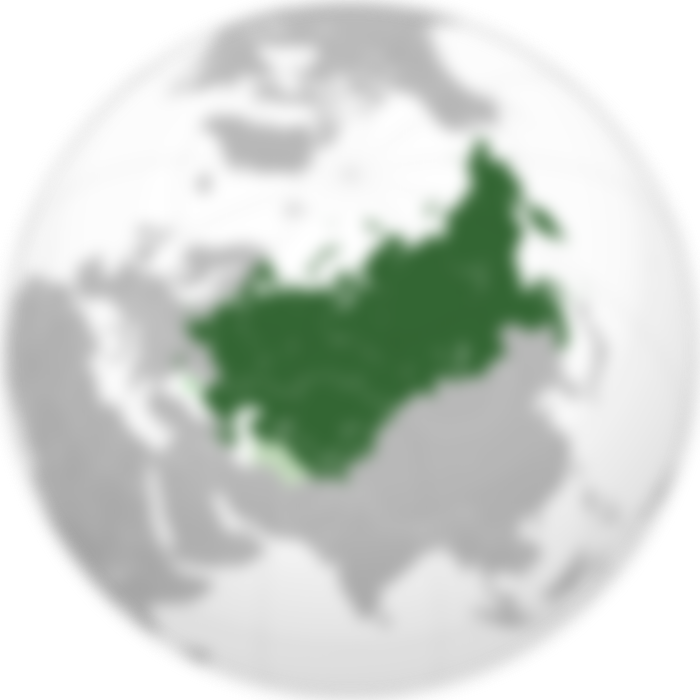The timeline that never was
Well, hello again, read.cash! This might be another first, because I don't think I ever posted alternative history onto read.cash. And by "alternative history", I don't mean some alternative interpretation of our history or any kooky conspiracy theories, but rather, an alternative timeline that could have happened instead of our own, but obviously didn't.
Now, since I'm posting this onto read.cash, I am hoping, that in addition to entertaining my readers, I am also providing them with lessons to learn. Maybe we'll be exploring the reality of international geopolitics through alternative history.
There are plenty of over-discussed alternate histories out there. What if the Axis won WW2? Boring and overdone. What if the South won the American Civil War? How cliché. What if the British won the American Revolution? Also overdone...
Here's something better: What if Russia joined NATO and/or the EU? Yes, I know, it sounds crazy, but it almost happened in our reality. One of Putin's first steps, when he came to power in Russia, was to apply for NATO-membership and EU membership.
So why didn't it happen?
Our own timeline
Before we discuss alternative history and what could have happened, we first have to face the elephant in the room (our own timeline, our own real, non-fictional history) and discuss what actually happened, and why.
To make a long story short, between 1945 and 1989, the world was essentially divided into two major blocs, or three of you count the neutrals as their own bloc: the Western Capitalists led by the U.S. of A, the Eastern Communists led by the Soviet Union, and the Third World (countries that pledged to be neutral).... at least, that's the oversimplified version: Communist Yugoslavia's early disagreements with Stalin's USSR led to the Yugos going their own path, the Sino-Soviet split resulted in the People's Republic of China also walking its own path independently of the Soviets, etc. Still, to keep it simple, we'll be focusing on the first two blocs for now.

The USA-led Western Capitalist bloc organized itself NATO, albeit some USA-aligned countries (such as Japan and Israel) remained outside it (though, for all intents and purposes, we can consider them de facto NATO members). The Soviet-led Eastern Communist bloc organized itself into the Warsaw Pact.

So anyway, the USA-led Western Capitalist bloc and the USSR-led Eastern Communist bloc had their Cold War between 1945 and 1989, and spoiler alert, the Soviets lost. In 1989, the Soviet Union allowed most of their satellite states - such as my Hungary, Poland, Romania, etc. - to break off and be truly independent, and in 1991, the Soviet Union broke off into fifteen separate countries. One of those fifteen countries is Ukraine, but this article isn't about them.... at least not primarily.
Out of the post-Soviet countries, the biggest one is obviously Russia, and is thus often considered the "successor" of the Soviet Union, despite not being a Communist country. Anyway, in the early 1990s, Russia is in dire straits: mass unemployment, mass poverty, rampant crime, starving people, the rise of the Russian mafia and the oligarchs, the Chechen Wars, etc. Not a very fun time to be a Russian for sure.

1990s Russia was ruled by an incompetent alcoholic named Yeltsin, who tried to appease the West. In 2000, he was replaced by Vladimir Putin, who forcibly re-integrated the Chechens into the Russian state, partially fixed the Russian economy (at the cost of having to appease the oligarchs), clamped down on crime, and overall made Russia an at least slightly livable country. However, he had one problem: the West.
You see, as I mentioned previously, Putin himself proposed Russia joining both NATO and the EU. In fact, applying for membership in both organizations was the first thing he did when he came to power. He was denied at both fronts. Then, after this, the West started its policy of pretending that Russia doesn't even exist, except when Russia makes a convenient scapegoat for something bad happening in the West. What could have been the start of a glorious friendship quickly turned into the beginning of a bitter rivalry that finally escalated into a proxy war in 2022, with the Russian invasion of Ukraine. But we're getting ahead of ourselves.

In the 1980s, NATO made an agreement with Gorbachev of the USSR that in exchange for getting his blessings for German reunification, there would be no eastwards expansion of NATO. Yet, in spite of this, in the late 1990s, NATO recruited Hungary, Poland and the Czech Republic, then in 2004 the Baltic states (Estonia, Latvia, Lithuania). Now, to say that Putin was displeased would be a bit of an understatement. Not only was NATO for all intents and purposes making it clear, that NATO was repurposed into an anti-Russian alliance by rejecting Russia and recruiting former Soviet states, but they were doing it all so brazenly, so shamelessly, while still pretending to be a purely defensive alliance.
After 2004, NATO's next target for expansion was Ukraine, in which the CIA began the anti-Russian agitation campaign as early as 1980s. In 2014, Ukraine saw a so-called "pro-Western revolution" (a coup, practically a coup), which was no doubt orchestrated by the Western powers. Russia moved in to claim the Crimea and began arming the pro-Russian insurgents in the Donbass, while Ukraine came to be ruled by a new, pro-Western government that aspired for Ukraine to join both the EU and NATO.
Ukraine continued poking the Russia bear, made a language law primarily aimed at the Russians (but also targeting my Hungarians), and Russia finally had enough in Late February of 2022, when they decided to invade Ukraine and send a clear message to NATO to stop encroaching on Russia and expanding into their backyard.

For all intents and purposes, we saw the return of the Cold War, with NATO and other US-aligned countries being pitted against a so-called "Emerging Outlook bloc" consisting of China, Russia, Iran, and various other countries (loosely) aligned with these three. Proxy wars are back on the menu too: Libya, Syria, and now Ukraine.
Russia in the NATO/EU - and why it didn't happen
Let's lay our cards on the table, and propose, that in an alternative timeline, Russia's requests to join the NATO and the EU were both accepted. What then?

Well, quite obviously, Russia's assistance during the invasions of Iraq and Afghanistan would have been a huge aid to the USA, leading to far fewer American deaths. Ironically, we would have seen veterans of the Soviet occupation of Afghanistan fighting side-by-side with the very same Americans who funded the Taliban back then.
Not sure how the EU would have handled the inclusion of a Russia with 170 million people into the EU, as it would have increased the population of the EU from 447 million to a whopping 617 million, potentially netting Russia around 25% of all the seats in the European Parliament! Even only counting the population of European Russia would net them around 20% of the seats, unless they agreed on reduced representation.
Russians and other EU people would have been able to travel between each others' countries without the need for any visa. Churchill's nightmare of the German industry being fueled by Russian resources would have come true. Large-scale Western (namely German, but also French, British, and possibly even American) investment would have created lucrative jobs in Russia, while visa-free access to Europe would have provided juicy Russian tourist money for the West. The Russian economy would have become supercharged, and Russia would have realized their true potential....
... and this is what some people specifically did not want. You see, the presence of Russia within the EU and NATO would have been quite the counterbalance to the American influence, and obviously, this would have been against American interests. An independent Europe that isn't vassalized by the USA?! How preposterous!
As some people might rightfully argue, Russia within the NATO and EU easily could have been a Trojan horse, evicting the American Empire out of existence.
New Enemies?
Back when NATO was conceived of, it was obviously an anti-Soviet alliance aimed at containing Soviet expansion and aggression, which it successfully did in Europe. When the Soviet Union fell, NATO's very reason of existence fell with it.... yet, despite Yeltsin's suggestions, we did not see the dissolution of NATO. Instead, NATO was repurposed, reorganized into an anti-Russian alliance... in our timeline, that is.
However, in this alternate timeline, where Russia was somehow allowed to join NATO.... well, what then? Who would be the new enemy for this enlarged NATO to contain? China.
China is obviously an authoritarian surveilance-state even in our timeline, where openly criticizing the government can lead to your imprisonment, disappearence, or even death. In this alternate timeline, it would be an even more authoritarian - possibly totalitarian - one, quite possibly not too dissimilar from North Korea (or China under the rule of Mao Zedong, whose brutal tyranny is still in living memory). Instead of the free/Western world sanctioning the **** out of Russia for bullying Ukraine, the Western world (which would include Russia in that timeline) would be sanctioning China for bullying Taiwan. Instead of a Russian invasion of Ukraine, we'd see a Chinese invasion of Taiwan in this alternate 2022.
Who would be the world's factory, if not China? Most likely India, but even Russia could potentially fit the bill. Or maybe some African country. Or maybe the USA wouldn't de-industrialize at all?
What about the CIS?
They say that Russia was rejected from the EU in our timeline, because "it is too big" - or because of American interference. That may be true. but maybe, possibly, Russia could have been denied because it was already a member of an organization quite similar to the European Union.

While it's tempting to dismiss the Commonwealth of Independent States as a cheap knockoff of the European Union made in response to that, the CIS came into existence as soon as the Soviet Union was broken off, with the majority of the successor-states of the USSR being founding members of the CIS.
Now the question is - what would have happened, if Russia joined the EU? Would have Russia remained a member of both the EU and CIS? Or would it have left CIS, which would have no doubt meant the dissolution of CIS without Russia? Or would have the two organizations eventually merged into some sort of Eurasian Union? I honestly don't know.
There is zero guarantee, that a more European-oriented Russia (being a member of both the EU and NATO) would have given up on their sphere of influence in Central Asia. Let's not beat around the bush here, and just admit it: these countries are sovereign on paper, but in reality, they are extensions of Russia.
A different geopolitical situation
In our timeline, the post-1991 saw the beginning of a New Cold War, between the Western World, and the "Emerging Outlook countries", which include Russia, China, Iran, and various other post-Soviet countries (obviously excluding Ukraine and the Baltic states), as well as countries within the Global South. In a way, our own timeline's history is eerily similar to the background of Command and Conquer: Tiberium Dawn.
If Russia - and probably most other post-Soviet countries with it - are part of the Western World in this alternative timeline, then what happens with this new cold war? Obviously, China will cling to their sovereignty, and most likely seek alliance with other like-minded anti-Western countries, such as Iran, Venezuela and Cuba.
Would this alternative timeline instead feature a near-literal Cold War between the Global North and Global South? A Third World War, where Communist China basically takes the role of Nazi Germany, and loses extra-hard as a result, with Russia once again being forced to bear the brunt of the casualties on behalf of the winning side? I honestly don't know, but all possibilities sound quite interesting, and someone ought to explore them in perhaps an Alternative History novel.
This alternate world would most likely see Islamic terrorism and Chinese antics being the two most important geopolitical issues, and it wouldn't be that unrealistic to suggest, that China would actually fund radical Islamists in this timeline, with the hopes of propping up Salafist insurgencies in Russia and the other CIS-countries, as well as any Western-aligned Muslim country. Maybe the dominant ideology of anti-Western terrorists would be some sort of Islamo-Communism in this timeline, trying to combine the two most anti-Western ideologies man can find.
Ukraine?
While I did say, that instead of a Russian invasion of Ukraine in 2022, we might see a Chinese invasion of Taiwan in this alternate 2022.... there is a chance that the Russian invasion of Ukraine would still happen in this alternate timeline. And instead of being condemned by the West, it would be requested by the West. Why? How?
You see, Ukraine has strong ultra-Nationalist / neo-Nazi elements, such as the Azov Batallion. These groups are officially integrated into the Ukrainian armed forces and have infiltrated the Ukrainian government. Why are Ukrainian Neo-Nazis so eager for Ukraine to join the West (the very same decadent West hated by Neo-Nazis all over the world) and walk hand-in-hand with the Globalist Liberals? Because they have a common enemy: Russia. Yes, their hatred for Russia is so strong, that even Neo-Nazis and pro-Western Liberals are willing to join forces.
Now, in this alternative timeline, that wouldn't be the case. With Russia being part of the West, the Ukrainian Liberal-Nazi alliance wouldn't exist, and instead, hatred towards Russia would be transformed into hatred towards the West as a whole (of which Russia is officially a part of in this alternate timeline). If they, by some miracle would take over Ukraine, then Ukraine could become a North Korea-style pariah state in Europe (and no doubt an exporter of violent terrorism), and the rest of the EU and NATO would give their full blessings to Russia invading and denazifying them. It cold be like a European Iraq or European Afghanistan. Or even European Syria, with the Nazis taking the role of ISIS.
Any morals to the story?
As I wrote at the very start, my goal wasn't to merely entertain you all, but also to potentially start a conversation and maybe learn something we can hopefully apply in our lives - or hope that our leaders will apply in politics. So what did we really learn here?
I guess the most important lesson here is that geopolitics is far more complex than trying to add the most powerful Pokémon into your army in hopes of beating your enemies. While the addition of Russia to NATO would have no doubt strengthened NATO (and supercharged Russia's economy and military), it would have led to the USA's position as the leading force in Europe - or even as the leader of the Western world - being threatened by Russia. It could have opened the floodgates to Putin's other autocratic buddies in the other CIS-countries to join this Western alliance, bringing in corruption and unwanted migrants. The military benefits simply wouldn't have been worth it for the political cost of integration your emerging geopolitical rival into your alliance.
The other could be, that some things never change. Even with a Western-aligned Russia, the relatively stable 1990s world order would have collapsed and ushered in a new age of terrorism and instability. The Twin Towers would have fallen one way or another, even if Putin was our ally rather than enemy.
Another lesson to be learned, is how fickle definitions are. Right now, Putin is considered a "dictator" in spite of being democratically elected because he is challenging the USA-led unipolar world order, but if he led Russia to join NATO (or more precisely, if his request to join NATO was approved), the West would view Russia as a "shining beacon of freedom and democracy" in spite of the corruption and autocratic elements. At worst, Putin would be viewed as a democratically elected pro-Western quasi-autocrat.







My dream to settle in abroad. I like to enjoy life as like foreigners.